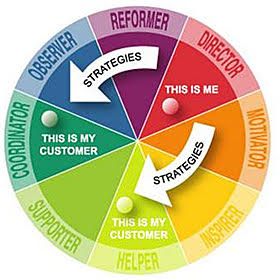Directing Yourself and Others: The Power of the Rational Thinker
Imagine being on a movie set. There are hundreds of people working, each with an important job to do. Some people act, while others adjust the lights or make sure the stage is ready for another take. At the helm of all this activity is the Director. The Director doesn’t just shout ‘Action!’ to mark the beginning of a scene but is also in charge of keeping the bigger picture in mind. Although you may not be the director of a movie, many people find their personalities and working styles are similar to that of a movie director.
Characteristics of an extroverted thinker
As the psychologist Carl Jung put it, directors are also known as extroverted thinkers, or rational thinkers. They are highly goal oriented and are driven to complete tasks quickly and well. They focus on results and motivate their team to achieve those results through action and hard work. They are personally motivated by the desire to achieve, and to achieve in the leadership roles they have been given.
Directors are:
- Decision makers
- Decisive
- Assertive
- Imaginative
- Task-oriented
They can also be:
- Forceful
- Demanding
- Autocratic
- Selfish
- Overbearing
When a director uses their strengths, they can put together a highly-functioning and productive team in their work setting. In their relationships, they can be trusted to provide a blunt assessment of a situation and give their honest opinion. They do not sugarcoat things. Sometimes a director’s strengths can turn into weakness and they can be seen as harsh, authoritarian, and unwilling to listen or cooperate with others.
Working together
A director can be headstrong and stubborn which makes working for one difficult at times. Being an employee of a director when you have director characteristics yourself can also present challenges, both interpersonally and in the workplace. Directors are logical, but can come up with imaginative solutions to the problems they face. They work best when left to their own devices, and excess supervision and routine chafe against them.
Directors judge others by their ability to finish tasks. Directors should watch how they interact with others who are of different personality types to make sure they are judging them based on their strengths, not just their ability to get the job done. Directors need to be careful not to overexert their independence or individualism because this can fracture the relationships they have with people around them. Directors can improve their interpersonal interactions by listening to others and accepting that the way someone else does a task isn’t wrong, just different.
If you would like further help in identifying yourself or someone you know like a director, schedule me, Scott Schwefel, as your keynote speaker. I will come to your group and address the differences in personalities in a truthful, fun, and easy-to-understand way. Follow me on Facebook, LinkedIn, and Twitter to share my blogs with the color energies you work with!




Leave a Reply
Want to join the discussion?Feel free to contribute!